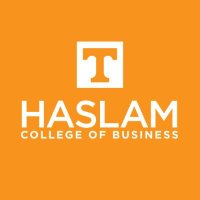A team of four master’s students from the Haslam College of Business at the University of Tennessee, Knoxville, has won the Canadian Blood Services (CBS) and SCAN Health’s Virtual Business Case Competition 2018/19. The competition aims to encourage rising business leaders to come up with methods to help health care systems pursue innovation in supply chain and logistics strategies.
Haslam’s team designed the best solution to help CBS achieve “vein-to-vein” tracking and traceability of blood products from the vein of donors to the vein of recipients. The proposal, by students Michelle Davis, Carson Hollingsworth, Morgan Sowers and Abigail Wegman (all of whom graduated recently) calls for CBS to use tracking technology to create a transparent, predictive and balanced supply chain for its blood products. For their winning proposal, the team will split a cash prize of $4,000.
CBS provides services related to blood, plasma and stem cells for patients on behalf of all provincial and territorial Canadian governments except Quebec. Davis explains that the team’s concept is founded on an integrated technology solution with a practical, achievable and scale-able implementation plan.
“Currently, CBS only has visibility within their system and not when it reaches hospitals, so our system bridges this gap by using passive RFID [radio-frequency identification] technology that begins at donation and integrates with the existing technology and infrastructure at hospitals,” she says. “It will give CBS the visibility and vein-to-vein track-and-traceability required to more elegantly predict and stock inventory and meet their customers’ needs.”
Additionally, the Haslam team’s approach will ensure that patients’ blood product requirements are met in a timely fashion.
“One of the most exciting aspects of working on this case was having the opportunity to provide real solutions that could impact thousands of hospital patients who use medical supplies provided by CBS,” Hollingsworth says. “Our proposed supply chain changes allow for CBS to deliver its critical medical supplies to patients more efficiently with improved accuracy and patient safety.”
In the SCAN Health competition, the Haslam team took on teams of budding business leaders from the U.S., Canada and other countries. Sowers says participating in fierce business case challenges like this one have honed the team’s skills.
“My team and I have been able to develop a variety of invaluable skills in problem solving and critical thinking as well as communication and teamwork that I know will directly translate to our future endeavors,” she says. “We are extremely grateful for the opportunity to participate in these competitions and are honored to see that our hard work paid off.”
Wegman credits her team’s win to the “well-rounded education” the winners received at Haslam.
“We won the competition because the MBA program taught us how to approach real-world problems and create practical solutions,” Wegman says. “The competition gave me confidence to enter the workforce post-graduation knowing I have the skills and experience I need to succeed.”
Thanks to their win in the 2018/19 competition, the Haslam team will travel to Ottawa later this month to discuss their recommendations and implementation plans in greater detail with Canadian Blood Services’ Executive Management Team.
—
CONTACT: Scott McNutt, 865-974-3589, rmcnutt4@utk.edu
Related News
UT Haslam’s Graduate Programs Highly Ranked by U.S. News
Supply Chain, Accounting and Marketing recognized as top programs
Read ArticleHaslam Honors Its Own During Graduate and Professional Student Appreciation Week
Graduate and Professional Student Appreciation Week is happening all this week, April 7-11.
Read ArticleUT Haslam Team Wins 2025 SEC MBA Case Competition
This victory marks Haslam’s second win in four years in the competition.
Read ArticleHaslam MBA Team Victorious in Ivy Mind-to-Market Case Challenge
With the first-place finish, team members William Adams, Haley Aud and Nathan Fink received a $5,000 prize.
Read Article
